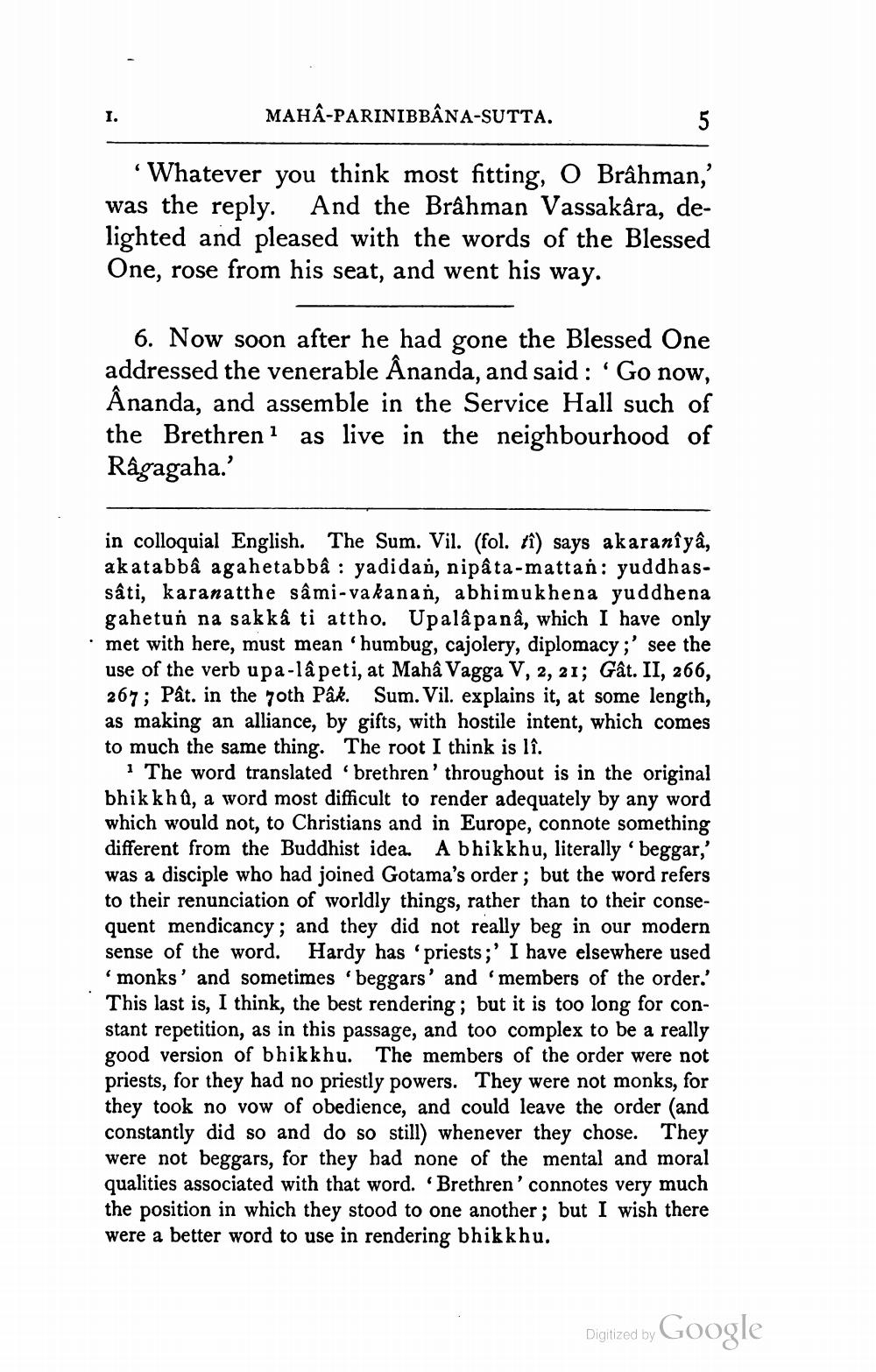________________
MAHA-PARINIBBANA-SUTTA.
'Whatever you think most fitting, O Brâhman,' was the reply. And the Brâhman Vassakâra, delighted and pleased with the words of the Blessed One, rose from his seat, and went his way.
I.
5
6. Now soon after he had gone the Blessed One addressed the venerable Ânanda, and said: 'Go now, Ânanda, and assemble in the Service Hall such of the Brethren 1 as live in the neighbourhood of Râgagaha.'
in colloquial English. The Sum. Vil. (fol. fî) says akaranîyâ, akatabbâ agahetabbâ: yadidan, nipâta-mattan: yuddhassâti, karanatthe sâmi-vakanan, abhimukhena yuddhena gahetuń na sakkâ ti attho. Upalâpanâ, which I have only met with here, must mean 'humbug, cajolery, diplomacy;' see the use of the verb upa-lâpeti, at Mahâ Vagga V, 2, 21; Gât. II, 266, 267; Pât. in the 70th Pâk. Sum. Vil. explains it, at some length, as making an alliance, by gifts, with hostile intent, which comes to much the same thing. The root I think is lî.
1 The word translated brethren' throughout is in the original bhikkhu, a word most difficult to render adequately by any word which would not, to Christians and in Europe, connote something different from the Buddhist idea. A bhikkhu, literally 'beggar,' was a disciple who had joined Gotama's order; but the word refers to their renunciation of worldly things, rather than to their consequent mendicancy; and they did not really beg in our modern sense of the word. Hardy has 'priests;' I have elsewhere used 'monks' and sometimes 'beggars' and 'members of the order.' This last is, I think, the best rendering; but it is too long for constant repetition, as in this passage, and too complex to be a really good version of bhikkhu. The members of the order were not priests, for they had no priestly powers. They were not monks, for they took no vow of obedience, and could leave the order (and constantly did so and do so still) whenever they chose. They were not beggars, for they had none of the mental and moral qualities associated with that word. 'Brethren' connotes very much the position in which they stood to one another; but I wish there were a better word to use in rendering bhikkhu.
Digitized by
Google




